Have you ever seen the horror movie where victims knew they were doomed left a written record - or just their name - so there would be some proof they ever existed? Maybe they left evidence for others in the future to find out what happened, who the perpetrator was … what caused the unfolding tragedy?
After reading the letter of February 6th from Rep. Mike Gallagher (R-WI), Chairman of the Select Committee on the Chinese Communist Party, to Ann C. Phillips, Administrator, Maritime Administration, that is exactly what came to mind.
I’ll post the entire thing below, but here are a few pull quotes.
At the top of page 2;
The Pentagon’s sealift plan for conflict currently relies on the mobilization of 45 ships of the Ready Reserve Force (maintained by the Maritime Administration) and 15 ships of the Military Sealift Command (a component of Transportation Command) to transport equipment and sustain our forces. In other words, the core military sealift capability of the United States consists of a mere five dozen ships. While the Secretary of Defense would be able to call upon additional commercial merchant vessels participating in the Maritime Security Program to meet any remaining sustainment requirements, the number of ships participating in the program today stands at just 60. This latter number is an extension of the diminutive size of our overall commercial merchant fleet. As of May 2023, out of a global fleet of over 40,000 merchant ships, the U.S. merchant fleet consisted of a meager 177 vessels, down from more than 600 in 1990. By contrast, China boasts more than 5,500 merchant ships, approximately 30 times what we possess.
As the Chief of Naval Operations disgorges over-staffed Joint Force talking points, this critical shortfall known for decades only gets worse.
BZ to Chairman Gallagher for putting it in writing.
These five questions lay out the faults such that you can’t avoid the answer.
To better understand the alarming state of our sealift capabilities and explore remedial solutions, we respectfully request that you provide written responses to the following questions no later than February 28, 2024:
1. Do you believe the current size of the sealift fleet is sufficient to meet sustainment requirements for a major operation in the Indo-Pacific?
a. If not, please explain your plans for creating a sealift fleet capable of providing full logistical support during a crisis, including the time and resources that would be required to put together such a fleet.
2. The average age of the ships in the Ready Reserve Force is 45 years. Please explain the ways in which the age of the vessels limits your capabilities and readiness to support operations in the Indo-Pacific.
3. What are your plans to acquire U.S. or foreign merchant ships to augment our sealift fleet?
a. Please describe how much such purchases could increase our sealift capabilities.
b. Please describe the limitations to relying on new purchases, whether of U.S. or foreign vessels, them to strengthen our sealift fleet. Please also describe whether your plans involve acquiring merchant ships from China.
4. What are your plans to increase the number of mariners who will be available to crew our sealift vessels during a crisis?
a. Will such plans fully remedy the current shortage of mariners?
5. How much will we need to rely on foreign-flag, foreign-crewed vessels to meet shortfalls in our sealift capability?
a. What do you assess are the risks of doing so?
b. From which countries will such foreign-flag, foreign-crewed vessels come?
We need more of this from Congress.
One final note: as regular readers here know well, Gallagher is one of a small handful of members of the House of Representatives who understands maritime issues without needing a brief. He also is not intimidated by senior uniformed personnel, regardless of who they are. He recently announced he will not be running for reelection in 2024. While I wish him and his family the best and thank him for all he has done to lead on maritime and national security issues we care about - boy howdy is he going to be hard to replace.

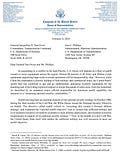


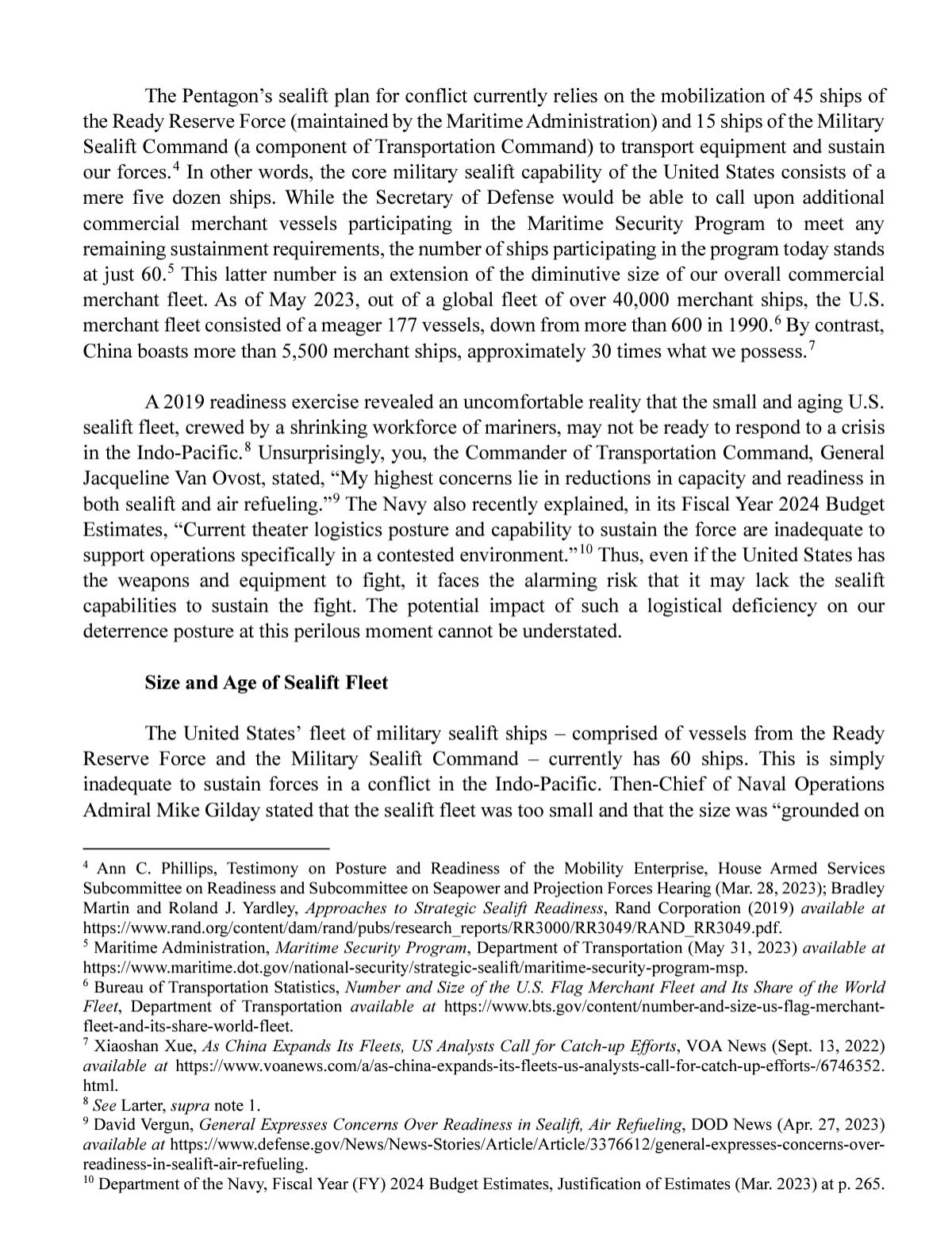
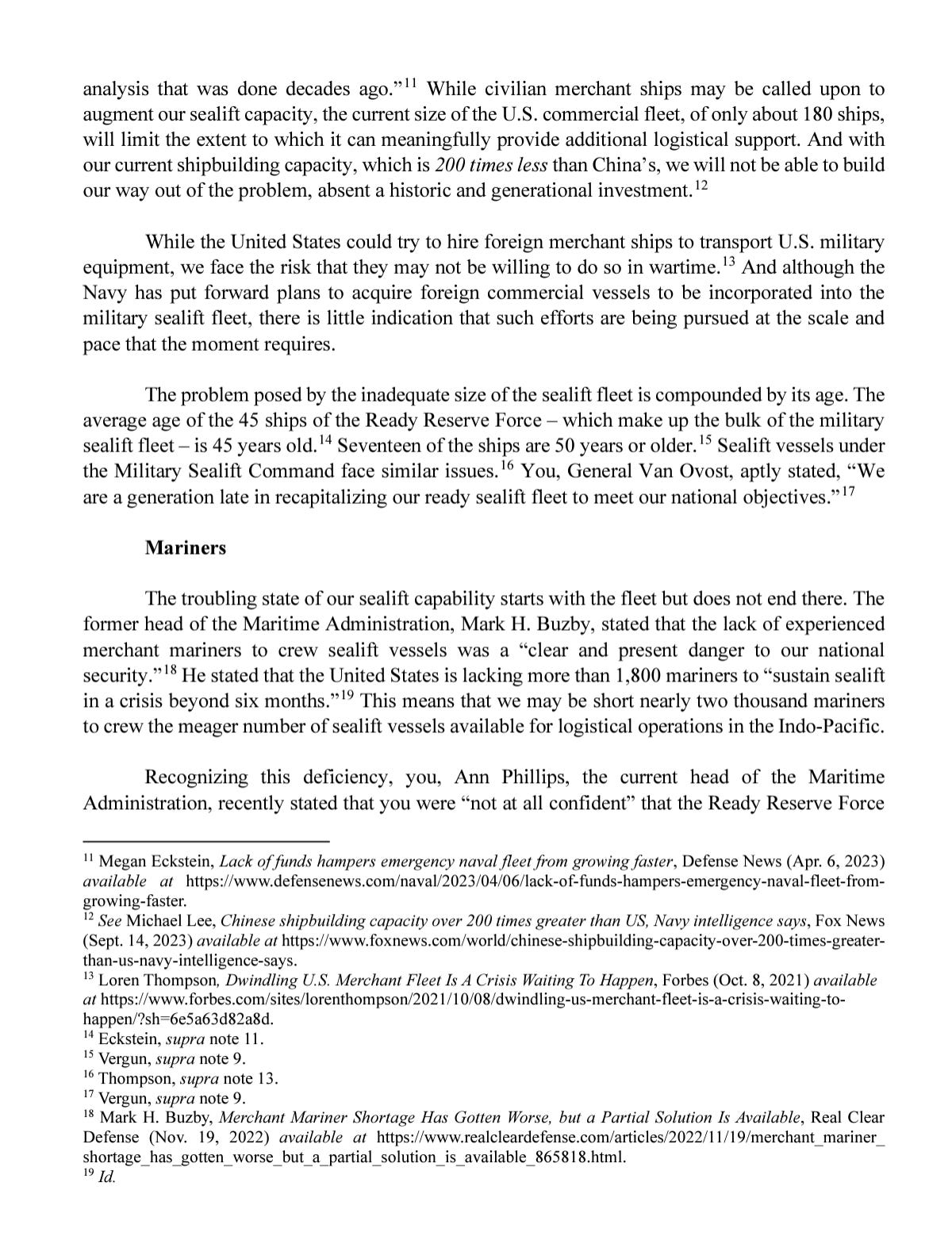
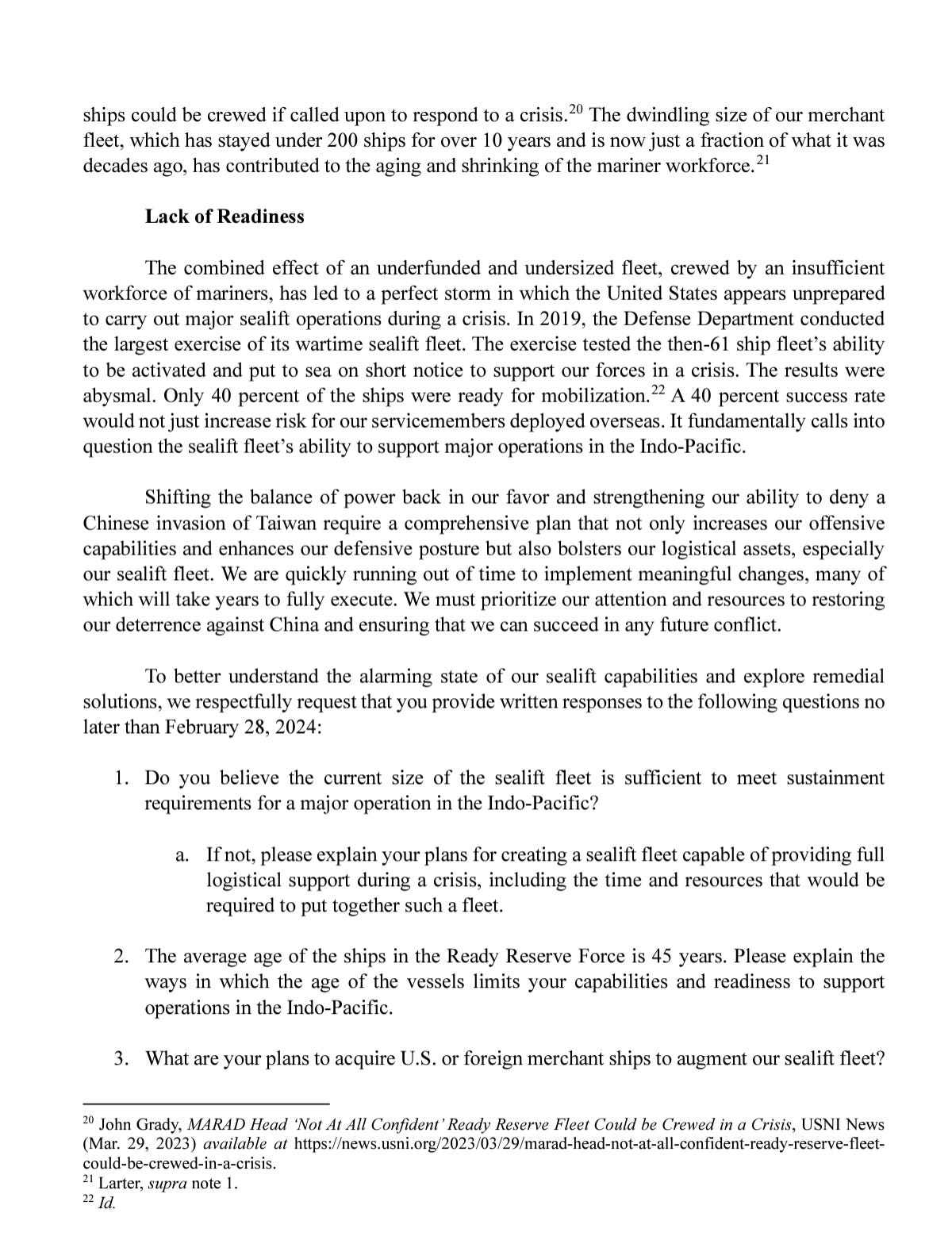
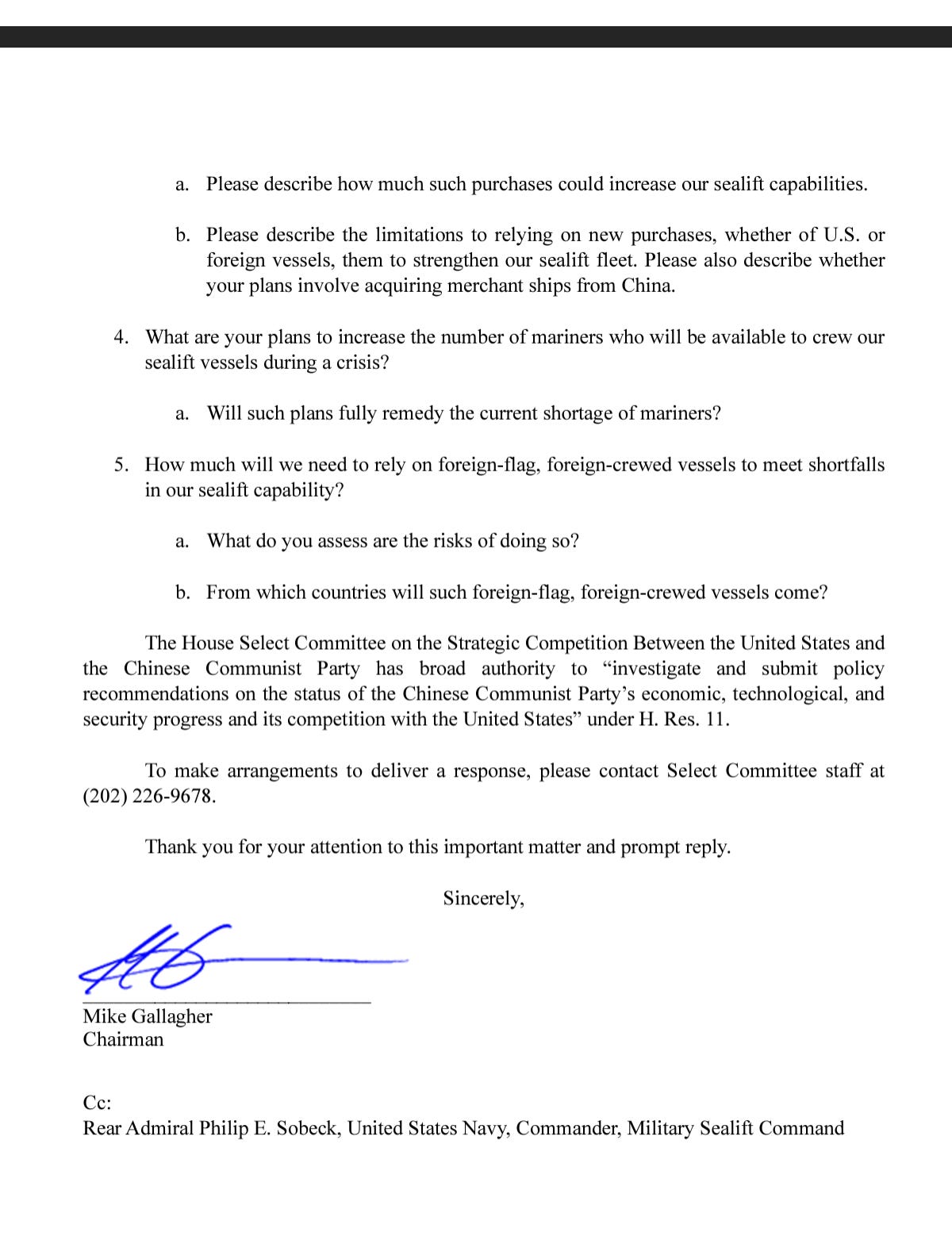
Admiral Phillips earned her undergraduate degree in French language and literature from UNC at Chapel Hill.
Was there not a single graduate from Kings Point or the six state academies available?
It takes time to come to the conclusion that you need to mobilize for conflict.
It takes time for the mobility combatant forces and their immediate logistics to mobilize and move into theater.
It takes time to get the follow-on logistics stores to move to ports of embarkation.
It takes time to bring ready reserve ships out of mothballs and begin moving stores and ammo.
It takes time to begin building ships.
It takes time to negotiate with shipping companies to commit hulls to war risk activities under contract and turn around from commercial activities when activated.
But the most important use of time is when a senior leader has to decide whether to use their time (two years at most) in their senior level decision maker position tilting at the windmill of fixing the known problems OR kick the can down the road for the next person.
Sadly, we (the royal "we") tend to not use "our" time wisely.